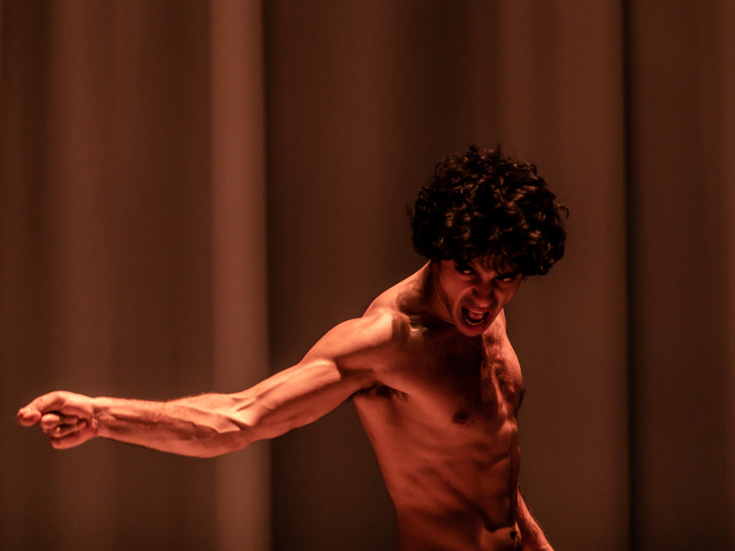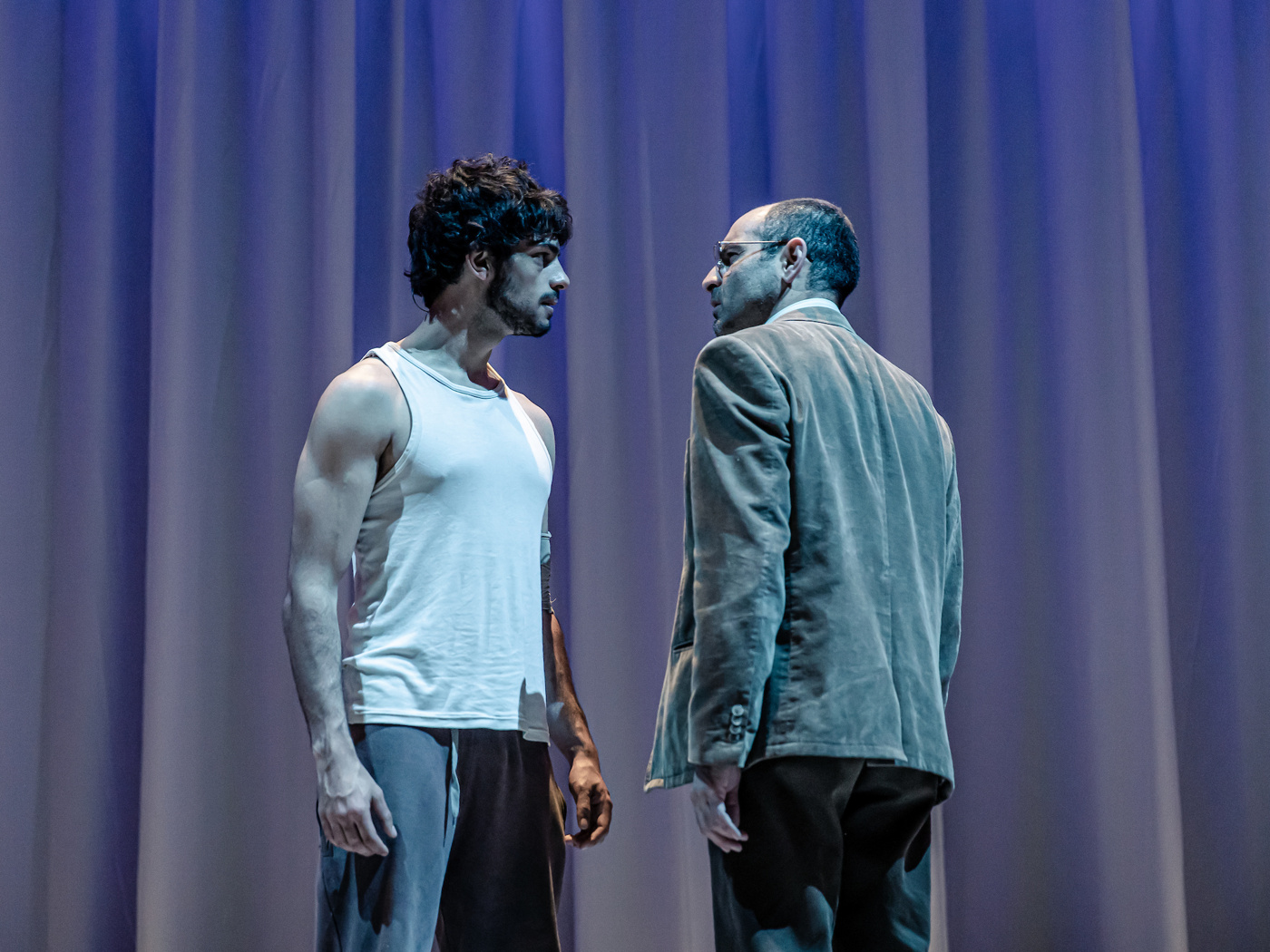London Equus Star Ethan Kai on Getting Comfortable with Onstage Nudity, Raves from Ian McKellen & More

(Photo: The Other Richard)
Ethan Kai may be known to fans of British TV from the Yorkshire-set drama, Emmerdale, but the 25-year-old actor is making one of the most astonishing West End debuts in years playing the disturbed stable boy, Alan Strang, in the current revival of Peter Shaffer’s Equus at the Trafalgar Studios. First seen earlier this year at the Theatre Royal, Stratford East, and then on tour, Ned Bennett’s production has had a commercial upgrade that has wreathed in plaudits a young actor here inheriting a role last played on the London (and Broadway) stage by none other than Daniel Radcliffe. So, there was much to discuss when broadway.com phoned Kai for a late-afternoon chat.
How does it feel to have got this production to the West End?
I certainly don’t see this as just another stop! Having done [the play] now for some months and known that a lot of people have enjoyed it, I think we’ve all come to the West End hopeful that people will enjoy our show again and that it still has that capacity to move an audience.
Doesn’t this also mark your West End debut?
It does, which is super-exciting—incredible, absolutely incredible. To be playing a role like this with such a great cast felt very fortunate to start with and feels even better now.
How much did you know of Daniel Radcliffe in this part in London in 2007—which you are too young, of course, to have seen at the time?
And I wasn’t living in London then either. But I do remember all the talk about Harry Potter getting his willy out on stage; you couldn’t help hearing about that. It’s not taking anything away from Daniel as an actor to say that I do think, unfortunately, that the play is most commonly known as the one where Daniel Radcliffe got his penis out on stage: it does the play such a disservice.
In what respect? [The play tells of a teenager, Alan Strang, who in a psychosexual frenzy blinds six horses with a metal spike.]
The play creates a really interesting discussion about normality and worship and religion and sexuality: there’s so much going on that anyone coming away from it thinking “that’s the play where so and so gets naked” has honestly missed something.

(Photo: The Other Richard)
Agreed, but were you nonetheless anxious about what was going to be asked of you eight times a week?
Yeah, I mean, it is a big thing and it’s what the play calls for—you can’t deny the history and, I guess, the power of that scene and of that moment and of showing just how vulnerable Alan is.
How did you come to terms with it in your head?
I met with Ned [Bennett, the director] before and he was so cool about it, so I knew that it was something that was going to be done in the most sensitive way. My comfort would come first before anything else.
At this point, is there something liberating about having that freedom on stage?
You know, I think that’s true. When you’ve done this sort of thing 80-plus times, there’s a certain point where you sort of let go and it does liberate you quite a bit, in a way. To go on stage and get naked in front of a lot of people does make me feel as if I can kind of have the courage to do a lot of things.
What do you make of Alan’s psychology, leaving aside the physical dictates of the part?
Obviously, the psychology can’t be ignored: it’s a huge part of a play that is technically a psychological thriller. The thing that really drew Alan to me was the idea of normality and the feeling that people need to have any sign of weakness or anything out of the ordinary chipped away at in order to fit into society: that really struck quite a chord with me.
How does that understanding inform your approach to the role?
To me, there’s something almost otherworldly about Alan where from a very young age he has grappled with this incredibly strong desire—this love and passion that overwhelm him and that have completely consumed his life.
What do you make of Alan’s relationship with his psychiatrist, Dr. Dysart (Zubin Varla, a 2019 Olivier nominee for Fun Home), who is there to cure a teenage patient whom Dysart on some level also envies?
There’s a side to Dysart that can be a bit fearful and wary of Alan and definitely a side to him that is incredibly intrigued based on what Dysart is going through in his own life. He’s at this particular crossroad when he meets a young, passionate man who has something in his life that Dysart is missing.
Did you bother to look along the way at the 1977 film version of the play, for which Peter Firth—the original stage Alan—was nominated for an Oscar?
No, because I didn’t want to be influenced by anything going into this. From my second read [of the script], I kind of knew how I wanted to play it and I didn’t want to know how it had been previously done. After the run finishes, I will definitely check [the film] out: the only reason not to was to avoid extra influences.
How does it feel to have had your production raved about on Twitter by, of all people, Sir Ian McKellen?
It’s funny because Sir Ian was there at press night, and I came out and was looking for my agent and didn’t even know he had come to the performance, when I felt some hands on my shoulder. I turned around and he was right there. He told me he really enjoyed my performance, which is the highlight of my career so far. The first thing I did was call my parents!
Speaking of Twitter, what was the reason for retaining your actual surname, Avdiyovski, for your own Twitter handle?
I got told in drama school not to let anyone change that name and then my first agent—who isn’t my agent anymore—told me I should change it, that it was too long. I’ve got to say that I do have some regrets about that now but Kai is my middle name and it is shorter and easier to remember.
As regards Equus, do you think you might want to return at some later date to the play, this time playing Dysart?
That sounds really interesting if they’ll have me. But what if they go, “Ethan who?”